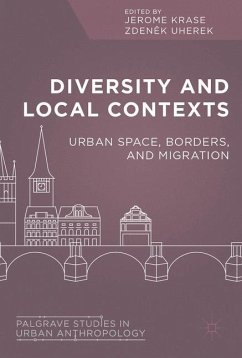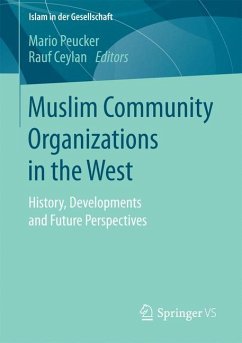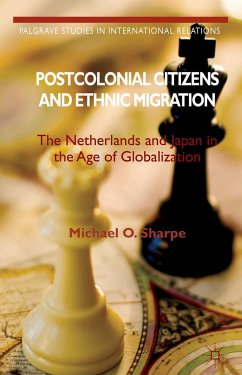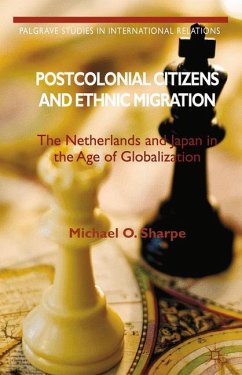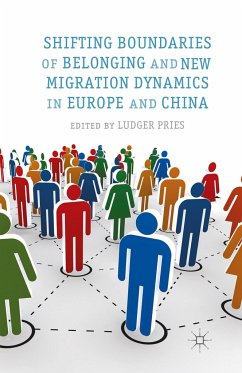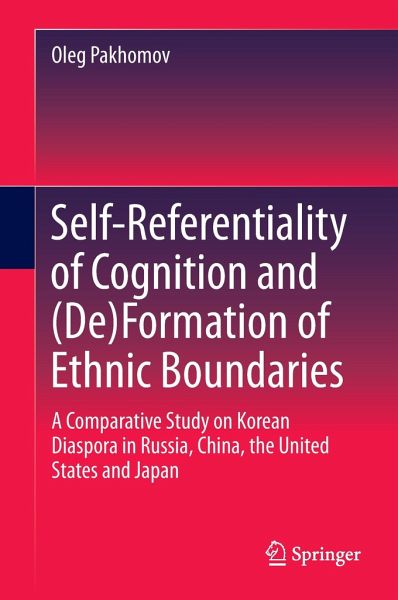
Self-Referentiality of Cognition and (De)Formation of Ethnic Boundaries
A Comparative Study on Korean Diaspora in Russia, China, the United States and Japan
Versandkostenfrei!
Versandfertig in 6-10 Tagen
38,99 €
inkl. MwSt.
Weitere Ausgaben:

PAYBACK Punkte
19 °P sammeln!
This book develops a new approach towards the formation of the ethnic boundary as a complex interrelation between cognitive operations and ethnic/national boundaries formation process. Korean diaspora in China, Russia, the United States, and Japan illustrate how this process correlates with the nationalism of the host societies, highlighting the differences and similarities. It covers a wide range of topics, from politics and economics to arts, mass culture and psychology, from comparative and interdisciplinary perspectives, at the same time avoiding eclectic combinations of different spheres ...
This book develops a new approach towards the formation of the ethnic boundary as a complex interrelation between cognitive operations and ethnic/national boundaries formation process. Korean diaspora in China, Russia, the United States, and Japan illustrate how this process correlates with the nationalism of the host societies, highlighting the differences and similarities. It covers a wide range of topics, from politics and economics to arts, mass culture and psychology, from comparative and interdisciplinary perspectives, at the same time avoiding eclectic combinations of different spheres of knowledge.
This book challenges interactionist and post-modernist paradigms that dominate today's social science and facilitates dialogue between social and natural scientists, especially cognitive studies to promote more complex and still systematic approach towards society. It combines in-depth research, comparative perspectives and theoretical thoroughness. It appeals to anyoneinterested in history, culture, economic and other aspects of Korean migration; the general theory and practice of migration; East Asian studies, Asian American studies, Russian studies and studies on social complexity and cognition.
This book challenges interactionist and post-modernist paradigms that dominate today's social science and facilitates dialogue between social and natural scientists, especially cognitive studies to promote more complex and still systematic approach towards society. It combines in-depth research, comparative perspectives and theoretical thoroughness. It appeals to anyoneinterested in history, culture, economic and other aspects of Korean migration; the general theory and practice of migration; East Asian studies, Asian American studies, Russian studies and studies on social complexity and cognition.





